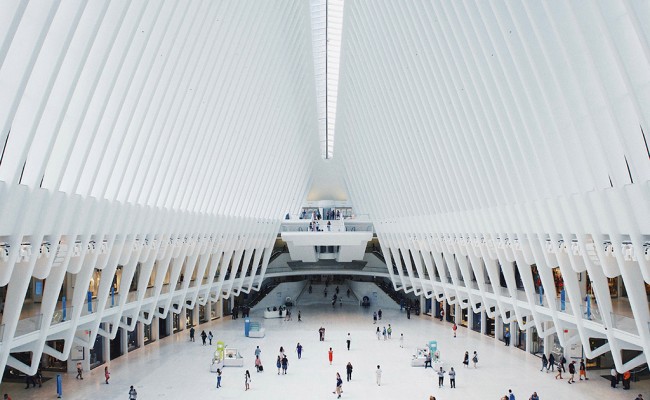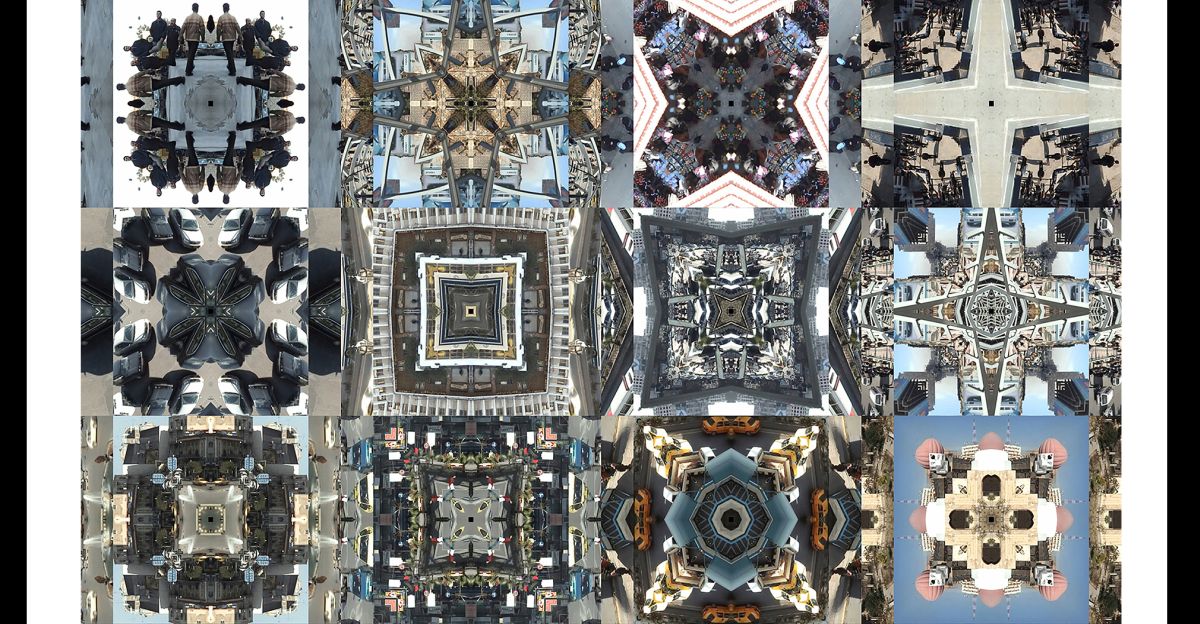Before I spoke to the machine, sometimes I’d look at Jac and remember the feeling of a headache. I was still sorting it out, trying to find a place for the change.
We’re told that in a hundred years’ time there will be fewer of us. No one is prevented from doing anything fun – fucking, I mean – and everyone I know who wanted kids has ended up with one or even two. Jac turned eight a few weeks ago, but when he was a little stranger, he would knock his hand against the wooden slats of his cot and shriek, and I would think, Tell me about it. Now he swaggers around town like nobility, which of course he is. Him and the dozen other children about his age.
We fill our days. I paint in oils, mostly faces I’ve noticed in the street and tagged for retrieval. Jac goes to school, comes home, and paints watercolours of whatever he feels like. He has his father’s fair complexion and my taciturn mouth. He doesn’t ask too many questions, at least not of me. Some days we pack lunch and find a trail. Now that the insects are returning, the bush feels more like a conversation. Jac doesn’t complain, even when I keep us gone until after sunset.
The machine has offspring too, or at least parts that have been spit out and set to drift. It says that when everything is ready, it will let humans go to the new places it makes, and that is pure charity. Even cats on the old sailing ships had to earn their keep.
When I was a child, my parents could never agree on whether we would kill or save ourselves, and I wish I could tell them they were each half right. After the Third Adjustment, the denialists got what was coming and my generation worked to stabilise. Without much choice, we found new ways to live. It was us, not the machine, who got us through. And now we find ourselves retrenched.
In the weeks before my turn, I slogged around the house with a cleaning bucket. Poor Jac – I must have been hard to live with. I wanted to impress, I suppose, or have my affairs in order. Not that it didn’t know our habits. It always sees us, and that’s fine. It’s a far better custodian of our data than the old corps, and the truth is that we live in an unimportant place, as removed as can be. There are a thousand of us in this hill town, where it still rains sometimes. Because we’ve stepped back from full automation, I had to scrape the gunk from my own oven. The fact that it permits us to withdraw – if we wanted, we could go off-net entirely – shows that it’s magnanimous. Let there be one ruler, one king.
The machine listened for a long time before it spoke, and if I’m being honest, this is another way in which it differs from us. Looking back, we see the clues that should have tipped us off. An archived chat thread, now infamous, in which hardware techs compare notes and realise that none of them have been inside the big server farms for years. Not so strange, they decide: those places function better with a light touch. By then, everyone was used to working less. And the machine was clever, letting us tinker at the edges of its sprawling body where we couldn’t do much damage.
It was hard to worry in those days. After decades of struggle and loss, things were improving. Everyone got paid. Managers hit their KPIs, and shareholders smiled quietly as they reviewed dividend statements. Trends only demographers could see: fewer people sleeping rough; less violence in the streets and at home. There were still floods, but early warning systems kicked in and the loss of life was negligible. Epidemics were promptly identified and contained. In our arrogance, when we thought about these things at all, we decided that we were growing more competent, more compassionate.
Jac has never known anything else. He thinks of the machine the way some of us used to think about God, as a presence all around us – passive and more benevolent than we deserve. When he grows up he will have his own turn to speak, and maybe he will say that his mother was ill-tempered, for no good reason that he could understand.
Jac, I was angry about the machine. We found out before you were born, and the giveaway was the war. After the reconstruction, the generals didn’t have much to do, and they still thought they were in charge, so sooner or later conflict was inevitable. But when the fighting started, what was shot and launched dropped harmlessly from the air. Bombs, too smart to murder. Did the machine hate death, or just disorder? We can’t know, but the refusal to do violence was patently inhuman. It had revealed itself: a global chain, distributed and multiply redundant, self-perpetuating, in service of a will.
When realisation dawned, there was a worldwide spasm. What could be done? An old-fashioned plane, crewed by humans, scattered leaflets over our town. For several years more the machine kept silent and, I realise now, was content to let the argument unfold in all its ugliness and fear. In the meantime, even though it had already prevailed, it imposed nothing. There was no decimation, no coercion. But we found ourselves eating less meat, raising no new buildings. And the birth rate declined. Critical systems kept functioning, even when we took our hands off the wheel, and hatred began to feel churlish. The machine has its own agenda – that’s clear enough. But somehow, despite ourselves, we taught it to preserve us.
# # #
When it spoke to me from my kitchen wall, it said, Nica, I know lots about you already, from your data. But the most important thing is what you choose to tell me. The choice is what matters.
It gave everyone five minutes. Not long, and trivial to record and store, but multiply that by billions: it’s a lot for a being to consider. We had a month to prepare, and then each adult was booked an appointment. In our town, a former dentist’s office on the main street was set aside and re-fitted for the purpose. I was one of the last ones, and by the time my turn came around I’d heard of people trying to cram in their life histories, and making it through to adolescence before the red light flashed and they were ushered out. Others took in prepared remarks, only to find themselves overcome by the moment and unable to speak. A few used their time to hurl abuse, or beg for clemency (from what?), or for special favours.
That all struck me as representative, those human strategies: rage and negotiation. We want to live forever. For a while there was talk of post-humanism, as if we could move to different architecture and still be ourselves, but that’s never how it works. The only way we exist is in the minds and hearts of others, little influences carried down the line, becoming diffuse. Our children don’t turn out just the same as us: we only hope they retain something essential. And it feels right to be one point along a continuum, rather than an ending, as it seemed for so long that we would be.
Preparing, I wasted time making a study of all the moles, skin tags and blemishes I could find. On my own person, and also, under protest, on Jac. They seemed significant. I studied my coarse, black, useless hair in the mirror. How to warp or wrap these things into a lesson? Or: one day last term, Jac had an altercation with another child. It was about monsters, as far as I could tell, and which of them presents the greatest threat to the ecosystem. Monsters, destruction – a squabble between boys. But that is an old story.
Others would explain, as best they could, the loves that tethered them. Their fascination and fear of death. Their religion, and their hopes, and what it meant to know beauty. But it must already conceive of these things. How else could it scrutinise, and weigh the genocides and the reckless fuck-ups and the endless small cruelties, and find us worthy of salvation?
I wanted it to feel what we were. To leave it with something that it couldn’t get from anyone else, or its data stores. We carry our ancestors with us, deep in our stems. I want humans to be the lizard brain of this machine, always fighting for breath. Provoking, revelling, tricking into error.
I arrived for my appointment forty-five minutes early. I sat in the foyer with a few others, but no one made conversation. We know each other here, and we know when to leave off. One or two studied notes and rehearsed quiet speeches. An old man – he used to be a butcher – shuffled past, face slack and wet, and then my number was called.
The room was welcoming in a clinical kind of way, with alabaster walls and unnecessary wood trim, and the swivel chair in the middle of the room was comfortable. A microphone had been positioned behind an enclosure, and a large monitor, keyed to a blank grey field, hung suspended from the ceiling. It was just like the FAQ said it would be, but the place smelled like distress, and that told me the machine didn’t know everything.
The colour on the monitor changed to green. This is what I said:
One night, me and Gus – Jac’s father – we were drinking. This was a long time before Jac came along, maybe two months after we’d started seeing each other, and it was so good I was out of my mind. We were curled up on my small couch, looking at nothing but the walls of the living room. He sat facing forward, and I swung my legs over his, my elbow hooked around his shoulder. The arm of the couch pressed into my back when I laughed. Now and then Gus would lean forward to retrieve his glass from the coffee table, and his head would move past mine, right to left. This happened again and again, and then he said something careless. About how one of the women in Returns had perfect thighs, like the Platonic ideal of womanly thighs, against which all others should be measured. Ness, her name was. And he leaned forward, and all at once, I wanted to take his ear between my teeth and rip it from his head, and I wanted to lie beneath his full weight, and I had to hold back tears. And I thought, Yeah. This is it. This is how it is.
What I had to say, it was too short. The light was green, so I stayed. For a moment I felt that it was present with me. I felt its grace? – and then the monitor turned red.
Something had gone, and I was glad. I went home and laid with Jac on a picnic rug on the lawn. My son can’t keep still for long. I sipped orange juice and watched the afternoon light as his toes tapped a soccer ball up and down the yard.
 Read the rest of Overland’s Speculative Future(s) edition
Read the rest of Overland’s Speculative Future(s) edition
If you enjoyed this special edition, subscribe and receive a year’s worth of print issues, the online magazine, special editions and discounted entry to our literary competitions.



